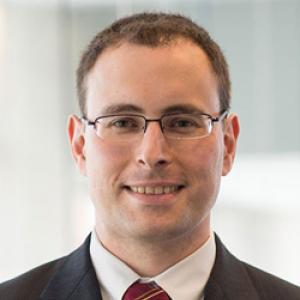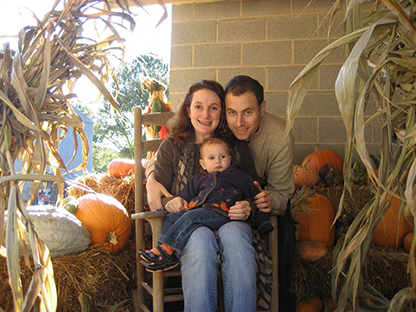
Miles Berger, MD, PhD – 2014
2014 DIG Research Projects | “Determination of the Role of Alzheimer’s Disease Pathways in Post-Operative Cognitive Dysfunction”
Background
I grew up in Shaker Heights, Ohio, where several excellent teachers in junior high and high school kindled my interest in science. After high school, I majored in biochemistry at Columbia University in New York City. I got my first serious taste of research working in a lab at the medical school, where I studied the chemical cues that white blood cells (the body’s first line soldiers) use to crawl towards invading bacteria. What a cool little game of chase these clever little cells would play in their quest to defend our bodies! I fell in love with science and I spent as much time in the lab as I could.
After college, I completed medical school and earned a PhD at the University of California at San Francisco. My colleagues and I discovered that the same chemical cues (and receptors) that tell white blood cells which way to crawl also play a key role in the development of cells in the pancreas that make insulin, a hormone that is required for the body to process sugar. If these pancreas cells don’t work properly and make enough insulin, people develop diabetes. Our work suggested a novel mechanism that could explain why some people develop diabetes and how to treat it.
In addition to my lab work, I also enjoyed taking care of patients. I loved the intensity of the operating room, and the realization that a good anesthesiologist could quite literally save a patient’s life with his/her own hands in a matter of seconds. The Department of Anesthesiology at Duke was uniquely impressive; not only did they want to take the best possible care of patients in the operating room, but they were also deeply committed to understanding why some of these patients seemed to have problems with thinking and memory afterwards. I thus decided to switch coasts once again, and came to Duke for my residency and fellowship training as part of the ACES (Academic Career Enrichment Scholars) program.
Research
Once I came to Duke and began my anesthesiology residency, I became interested in what might cause some patients to have thinking and memory problems after anesthesia and surgery. Some of these thinking and memory problems are similar to those seen in patients in the early stages of Alzheimer’s Disease, and several studies had already shown that anesthetic drugs could promote Alzheimer’s Disease pathways in laboratory animal models. But did anesthetic drugs actually act on Alzheimer’s Disease pathways in our patients? And if so, was this really the cause of some of the thinking and memory problems in our patients?
To answer these questions, my mentors (Drs. David McDonagh, Michael “Luke” James, and Joseph P. Mathew) and I have set up two clinical studies. We, and several others, have found that our patients have changes in Alzheimer’s Disease markers in the fluid around the brain after anesthesia and surgery. What remains unclear is whether specific anesthetic agents cause these changes in Alzheimer’s Disease markers, and whether these changes could explain thinking and memory problems after anesthesia and surgery.
The DREAM Campaign is providing our group with the opportunity to pursue this new area of study, which is the Determination of the Role of Alzheimer’s Disease Pathways in Post-Operative Cognitive Dysfunction. The support of the DREAM Campaign is essential to allow us to obtain the initial data we will need to successfully apply for NIH funding. I am thankful for our DREAM Campaign donors and all of their support and investment in our studies. I’d encourage others to support the DREAM Campaign to help turn our dream of discovering better ways to take care of patients into a reality.
Personal

My wife, Miriam Boxerman Berger, MPH, also works at Duke, in the Center for Health Policy and Inequality Research. Both of us are committed to improving how we care for our patients; here at Duke, across the state, and beyond. Our daughter, Sylvie, was born at Duke Medical Center, just down the hall from the Department of Anesthesiology. We love living in Durham and being apart of the wonderful community of scholars, scientists, and researchers that make up Duke University. I am deeply grateful to the DREAM Campaign for supporting the innovative research that will help us take even better care of our patients in the future.